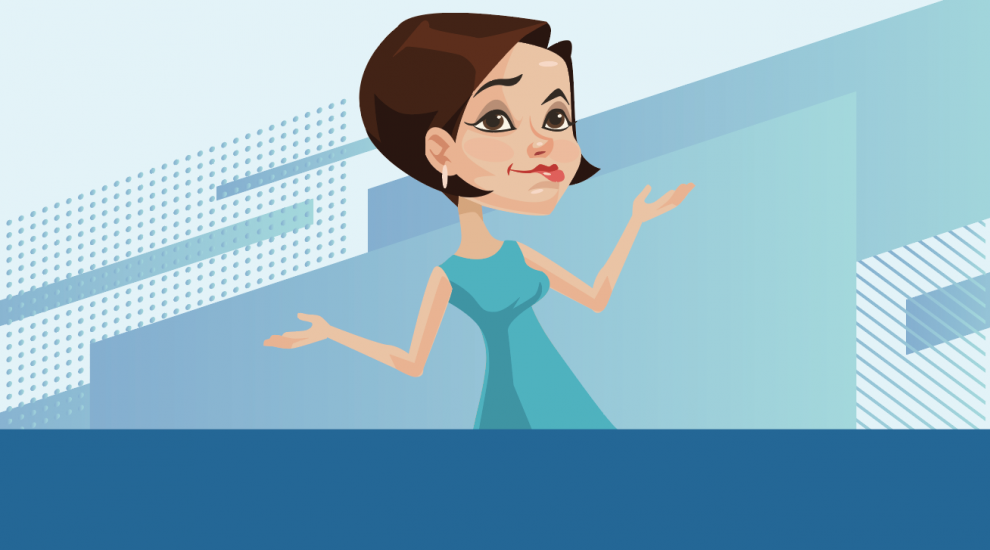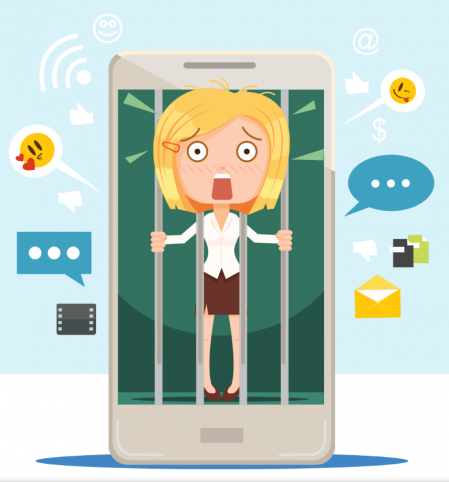

It’s no secret that recent events have forced more of our lives to go online.
Working remotely, exercising via Zoom and even learning at a socially acceptable distance is now commonplace for just about every member of the household.
For many businesses it sparked a change that was a necessary means of survival; for others it heralded a completely new way of operating and communicating. It’s frightening to consider in the short space of a few months just how much of our lives have been handed over to the internet promoting everyone to question, if you’re not online now…do you even exist?
Bill Gates famously stated last year that: “if your business is not on the internet, then your business will be out of business.” Whether or not he knew about the foreboding pandemic is unknown, but surely even he couldn’t have predicted the speed and degree to which this prophecy would come true and consume our lives. On our little island (which is sometimes slightly behind the trend) firms suddenly sat up taking note of the power of social media, a digital message being the only way of communicating during the lockdown period. Those without online stores furiously went about setting up Facebook shops, held virtual online markets and Watch Parties to engage with their audiences in a desperate bid to sell their goods and services.
For us mere mortals, the concept of leaving the house without access to the internet has become terrifying. We need our phones to pay for goods, in some instances to order meals from establishments, and to pay for parking. Near enough every function of our lives now comes with a built-in app. It doesn’t even bear thinking about what life in lockdown would have looked like without access without the internet, without being able to work online, chat to our friends, or god forbid, to access Netflix! Mental health declined as online figures surged and whilst many wellbeing gurus will have encouraged us to read a book, take a walk or paint a picture like the good old days, the reality was that we were forced, just like businesses, to move our engagement online.
Research has shown that there is a correct way to act on social media to derive a benefit from it - and that is to participate. Passively consuming the information we are fed makes people feel worse, whereas interaction has been seen to offer improvements to your mental well-being. But perusing through social media is like falling down a rabbit hole, one where you lose hours of your day, with nothing to show for it. And it’s contagious, Facebook leading us to Instagram, Instagram encouraging us to buy online, buying purchases that need to be photographed and shared in order to be acknowledged. Because without sharing and engaging we don’t feel validated. The phenomenon has ever coined the phrase “if you didn’t instagram it, did it even happen?” revealing societies’ deep-set desire to truly connect.

Contrary to popular belief, the internet is not the only form of connection available to us, albeit we are rapidly losing sight of other, slower forms of communication. It was refreshing to read of one local illustrator who saw sales of her greeting cards soar during the last few months, as people returned to the old-fashioned tradition of sending messages in the post. To write, or make a phone call, has become regarded as quaint and nostalgic, like watching black and white television was to our parents. Whilst the pressures of recent events has delivered a host of innovative and creative uses for online platforms it’s also made life feel less authentic. It’s become so carefully constructed that it’s hard to tell what is real and not, what is true or false.
Sadly we can’t really leave our bubble of an island at present, so we must rely on being drip fed the outside world through social media and various online news reports. Our version of the world has been carefully constructed for us; perceptions shaped depending on what platforms you choose to put your trust in.
While we continue to focus on avoiding corona virus, it is likely that most of us will succumb to this new virtual virus, an online world with different rules and demands that will shape us in ways we haven’t yet fathomed. Like most technological advances it brings advantages with its evolution in balance with questions about our moral values and the control of information.
Are we really that far from being left at the mercy of our devices and an online connection to the rest of the world? 2020 isn’t just the year the world came to a standstill; but also the year I think the internet stole my soul.
This article first appeared in October's edition of Connect magazine. Read it in full here.
Comments
Comments on this story express the views of the commentator only, not Bailiwick Publishing. We are unable to guarantee the accuracy of any of those comments.